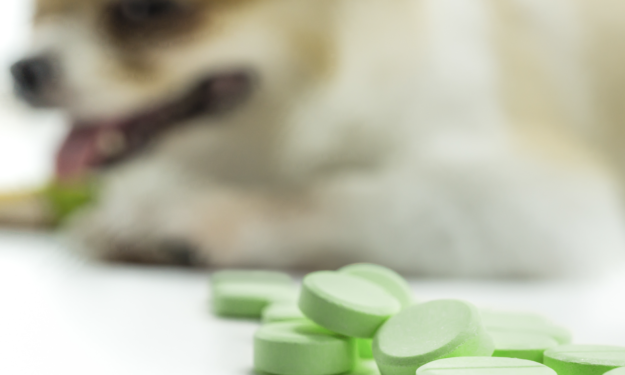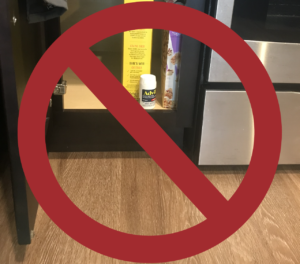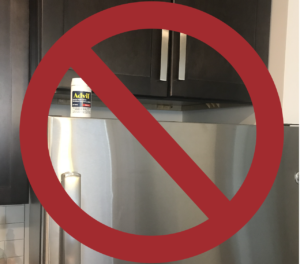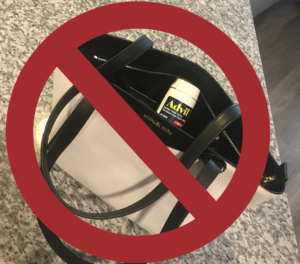Medication Storage: The Do’s & Don’ts to Keep Your Pets Safe

Written by Marissa Ann Portillo, BS, RLATG, CM
There are few things in life more frightening than waking up in the morning to find a medication bottle chewed up on the carpet – and empty! Anyone who has experienced this can speak to the sheer panic that enters your mind. You’re not sure what to do or where to go.
The best thing you can do for your pet is this scenario is preventing them from ingesting medication in the first place. This means proper storage and thinking before you place that medication bottle in your purse on the counter. Here are a few do’s and don’ts of storing your medicines at home to keep your cat or dog safe.
Do: Keep pet medications stored away safely.
Just because a medication has been formulated specifically for animals, doesn’t mean care shouldn’t be taken to store it away properly. We often see pets get into their own medication bottles – especially flavored / chewable tablets. This is a very dangerous situation and can have terrible consequences. You should yield the same caution with pet medication as you do with human medication.
Don’t: Think that just because it’s for your pet, it doesn’t matter if they get into it.
Do: Keep medications up up and way away.
Storing your medications in an area that is high off the ground and tucked away is an ideal practice. Keeping medications physically in the medicine cabinet (one that closes with a lock or magnet) can make sure that your pets don’t accidentally make your medication bottles into an afternoon snack.
Don’t: Store medications in low or easily-opened cabinets.

Do: Keep medications stored away securely.
What goes up, will come down. Storing medications on top of the refrigerator is a very common practice; however, leaving bottles out creates an opportunity for your pet to either knock it off to top of the fridge (those sneaky cats!) or bump into the fridge and cause the bottles to fall. It’s best to avoid this risk and make sure medication is always put away.
Don’t: Store medications on top of the fridge.

Do: Keep medications zipped up or put away.
Leaving medications in your personal bag or purse can feel like a very logical thing to do. Some pets may take this storage technique as an opportunity to dig through your things for what they believe is a tasty treat. If you choose to keep your medicines in a bag, always remember to close up the bag and store it in an area where pets cannot access, like in a closet. Strong-willed pets may even chew through your bag if they think they’re getting something super delicious!
Don’t: Keep medications in open purses or bags.

If you should ever be in doubt about whether your pet as eaten any of your medicine, or even their own, by accident – go to your nearest veterinary emergency facility. Time is life. The sooner you seek treatment, the better chance you have at receiving potentially life-saving care.
At Ethos, we know that accidents happen, and we offer a judgement-free zone to make sure your pet gets the highest quality care possible. If you’re nervous to discuss exactly what type of prescription your pet consumed, please know that we only want to make the correct treatment plan for your loved one – we will not discuss or comment the type of medication it may be. We believe in equal treatment for all clients as well as patients; open conversations are a must for this to happen.